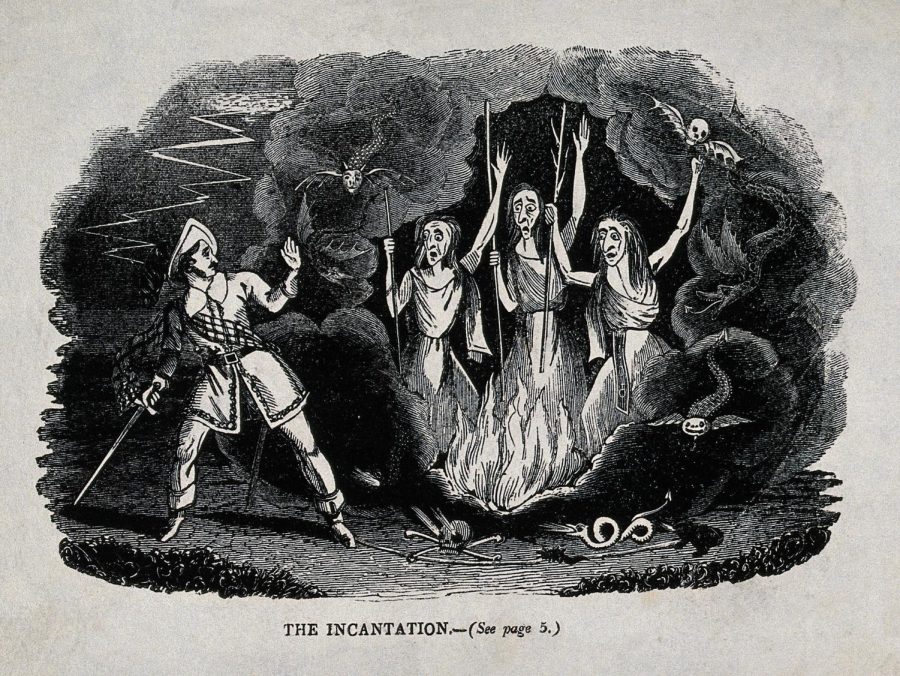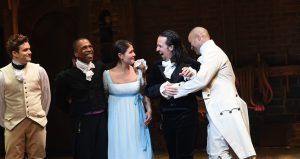Why “The Scottish Play” is Bad Luck
Macbeth meets the three witches; scene from Shakespeare’s ‘Macbeth’. Wood engraving, 19th century.
February 15, 2022
If you’ve ever been involved in theatre, there’s a good chance you’ve heard of the curse of Macbeth. It is said that if you say the name of the play in a theater, you and your show will be cursed.
This superstition didn’t come out of nowhere. According to legend, the bad luck stems from Shakespeare including real incantations in the play, angering a coven of witches who then cursed the show.
It goes back as far as the very first production of the show, where rumor has it that real daggers were used accidentally, resulting in the death of one actor. Another alleged disaster resulted in Shakespeare himself having to take over the role of Lady Macbeth after the original actor died suddenly.
Ever since, productions of the play have been riddled with mishaps—broken props, actors falling off stage, mysterious deaths.
Luckily, there are ways of preventing catastrophe even if you do let the name slip. The most common way is to leave the theater, spin around three times, spit, curse, and then knock on the theatre door before being allowed back inside. Other ways are to run around the theater three times or to recite an excerpt from A Midsummer Night’s Dream or The Two Gentlemen of Verona.






